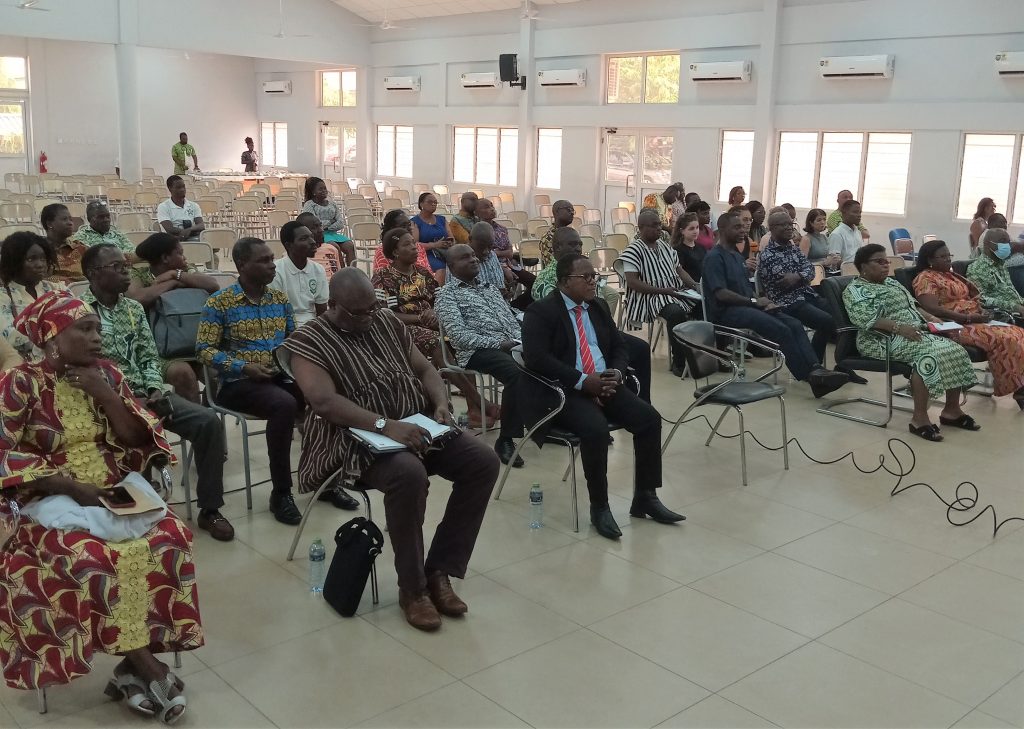By Maxwell Awumah
Ho, May 8, GNA – Professor Tobias F. Rinse De Wit, Director of Research, PharmAccess Foundation, has said Africa needs to build strong capacity and resilient diagnostic systems in preparedness ready for any epidemics and disease outbreaks.
Referring to the COVID-19, Prof de Wit said such preparedness would help deal with epidemics in magnitudes of a pandemic to forestall being confounded by future infectious diseases.
He said lessons learnt from the COVID-19 pandemic should be an eye-opener for Africa’s scientific and research community backed by state support to build strong ecosystems and buffers using digital technology to prepare for the next pandemic, just backdoor.
Prof de Wit was delivering a lecture at the University of Health and Allied Science (UHAS), on “From COVID-19 to Digital Epidemic Preparedness in Africa,” which was attended by Management, Heads of Department, Faculty, and students.
It was organised by the Office of the International Programme under the auspices of the office of the Vice Chancellor.
Prof de Wit, a co-chair of the World Health Organisation (WHO) Global HIV Drug Resistance Network said a new public health order for Africa in rapid pandemic diagnostics against future infectious diseases was the way forward to avoid being outsmarted like in the case of COVID-19.
He enumerated concerns to include developing low-cost insurance platforms to democratize healthcare in Africa, improve healthcare quality by introducing clinical and business standards, conduct independent academic research as a catalyst for more data to improve outcomes and cost-efficient healthcare solutions.
He demonstrated how using digital tools helped Kisumu, the third largest city of Kenya, to fight lingering infectious diseases including COVID-19 pandemic and others to acceptable outcomes in the health sector.
He said digital epidemic preparedness networks deployed was able to detect the first Omicron infection in Kisumu with 19 other emerging diseases including cholera, malaria, TB, leprosy and monkeypox through mapping and profiling to reach out to the population.

Prof de Wit said Digital Innovations and Diagnostics for Infectious Diseases in Africa (DIDIDA), an European Union and the United Kingdom Research and Innovation funded project was supporting to develop reliable, low-cost and mobile phone-connected tests to help detect multiple diseases at once in sub–Saharan Africa.
He said the collaboration between Europe and Africa aimed to strengthen research and innovate capacity in Africa in training, staff exchanges, PhDs scholarships and events.
Prof de Wit, a Molecular Biologist, Public Health specialist, Principal investigator at the Amsterdam Institute of Global Health and Development (AIGHD) added that climate change remained the biggest health threat facing humanity in the 21st Century as it affected all environmental determinants of health including clean air, safe drinking water, sufficient food and secure shelter.
He said between 2030 and 2050, climate change is expected to cause approximately 250,000 additional deaths per year, from malnutrition, malaria, diarrhoea and heat stress with exacerbated healthcare outcomes.
He added that areas with weak health infrastructure, mostly in developing countries, would be the least able to cope without assistance to prepare and respond and therefore entreated researchers, state actors, development partners and the academia to prioritise efforts at epidemic preparedness against outbreaks of infectious diseases.
“… countries invest in modern disease surveillance using digital tools, health security workforce and outbreak planning and readiness,” Prof de Wit said.
“Infectious diseases will stay with us for a long time. Make the right decisions at the right time,” as the next pandemic is just backdoor, he said
Prof Lydia Aziati, Vice Chancellor of UHAS called for transparency and speed navigating the digitalization discourse and have validation of data in readiness to take decisions in readiness of emerging outbreak of infectious diseases.
She praised Kenya for chalking a success story from the foregoing and prayed Ghana becomes a beneficiary site using digital tools to deepen epidemic preparedness as pandemics are bound to break any day.
She said the UHAS is ready to engage with all who want to work with the University for partnership and development.
GNA